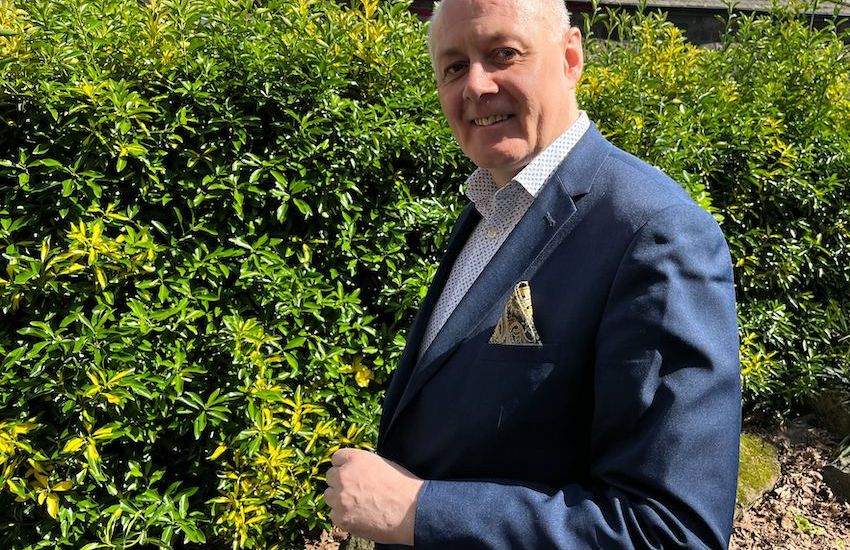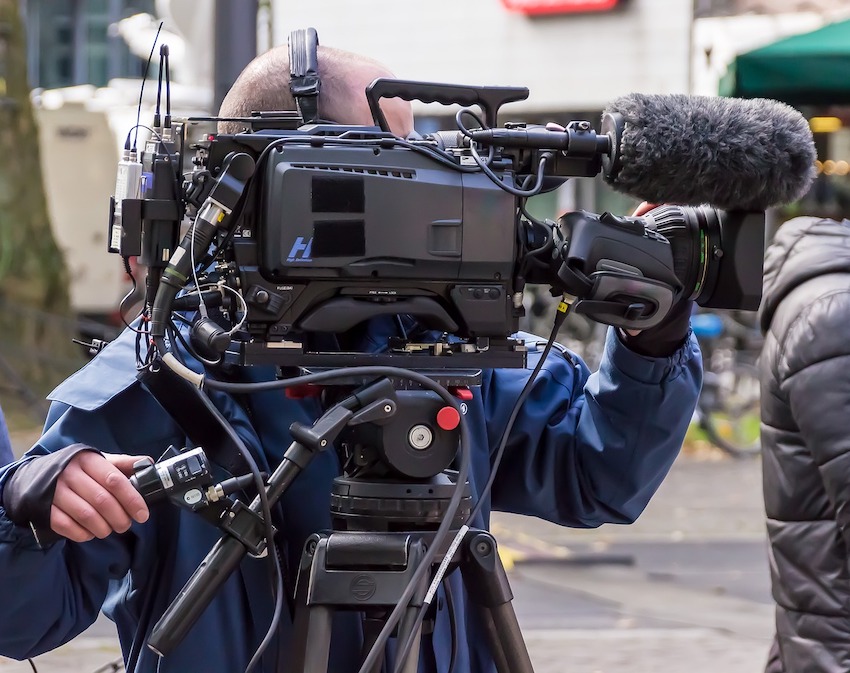


Investment through Guernsey will be used to help ignite the British film and creative industry.
The Roxburgh Production Fund aims to bridge the gap between the sector and finance.
It comes amid warnings from its founder James Barry that the British film industry is propped up by government tax credits that could be pulled because of the cost of living crisis.
“We must become the go to alternative investment fund for anyone who wants to get into that space, whether it be feature film, online, television, or animation,” said Mr Barry.
He said that since 1992 bodies like the British Film Commission, British Screen, the British Film Screen Advisory Board and also BAFTA, have all said that they were going to have closer ties with people in the City.
“They’ve never done it,” he said.
“As I’ve pointed out to a lot of the advisors I’ve met in Guernsey, the British Screen were actually given £80m. over 13 years to hold events with the people in the City to bring investors on board. They never did it, not once.”
The lack of quality cinema and TV being made in Britain, outside of the work of Disney, Amazon, Netflix and Paramount, is a driving force behind the creation of the fund.

Mr Barry has been in the film industry for 30 years.
He said there were usually three figures you hear from someone wanting to make a film: they want to do it for £2m., will shoot it in six weeks and pay £15,000 for a script.
What happens in reality is that they get less than £600,000, shoot it in eight to 12 weeks, so are over budget and then no-one comes to see it.
“We want to do it properly, do it as a business, which the studios in America have been doing for four decades.”
He is working on a book called Brexit Versus Creativity and has looked at the history of the situation.
“Through that time, our films have never made any money at all, except for the odd one or two like Four Weddings and a Funeral or The King's Speech quite recently,” he said.
“For the vast majority of the time, the entire industry floats on tax credits. If that gets taken away, then the industry will actually collapse. And it's already happened twice before.
“With the current cost of living crisis that we have at the moment and the fact that tax revenues are actually down, I wouldn't be surprised within the next two years minimum or three years minimum, that they will pull the tax credits, and they will actually collapse. We want to come in as Roxborough and take over that space.”
He said that there were a lot of investors that were interested, but no-one had reached out to them.
“So we see that there's this gap in the market, and it's a big gap in the market, that needs to be taken care of and then for us to be able to find the right projects that will resonate with audiences.”
He said there was a complacency in the film industry.
“We've just seen in the Spring statement that they're increasing the amount of right off from 25% up to 39% for the UK film tax credit. That's a signal. The last time that actually happened was in the 1980s and a year later was when they pulled the Eady Levy, and closed all the debt and collapsed the business. This is a warning sign.”
That levy was a tax based on box office receipts in the UK to support the British Film Industry.
Mr Barry warned there was a danger that if the industry did not get its act together and the Americans pulled out, there would be three million square feet of studio space that was not going to be used and no-one would fill it.
“Unfortunately, the vast majority of the people that I know in the industry are just complacent. They're just waiting for somebody to give them a check, rather than being proactive and getting out there.”
He said the last people to do that were the Boutling Brothers, who produced I’m Alright Jack in 1959 and had a good relationship with Frank Capra; and Barbara Broccoli with the James Bond franchise.
“But that's it. That's all we've actually got. We need to be a lot more proactive.”
While in Guernsey last week he had ten meetings over four days.
“The reception has been absolutely fantastic. Further to that is a real sense of a financial community, so if they could not do it, or were not interested, they would recommend somebody else. Or if they needed a little more knowledge, they would ask questions, which we didn't get in London. They are much more entrepreneurial as well.”
The fund originally was going to be set up in the British Virgin Islands five years ago, but there were dramatic changes to the regime there.

Pictured: The British Virgin Islands.
Within a couple of months of his lawyer suggesting using Guernsey, it happened.
In his three decades in the film industry, producing two feature films and several shorts, he quickly realised there was a lack of trust and investing in this area was seen as very risky.
He wanted to do something about that and during Covid began building his skills and working further on the concept.
“I’ve had to create a new business model, how to reduce that risk as much as possible, so that investors can feel safe and happy with that. I'm very happy to say that the response has been very positive about that. They seem to be reassured that the business model is good for them, which is great, because then it's good for us. So we can put our work behind the creative side of things.”
Main image: Roxburgh Production Fund founder James Barry.
Comments
Comments on this story express the views of the commentator only, not Bailiwick Publishing. We are unable to guarantee the accuracy of any of those comments.